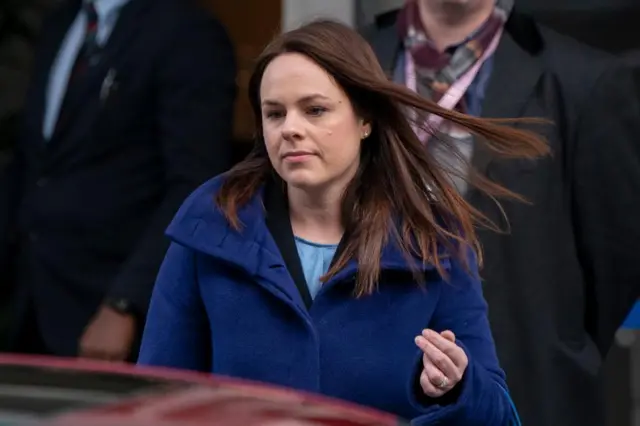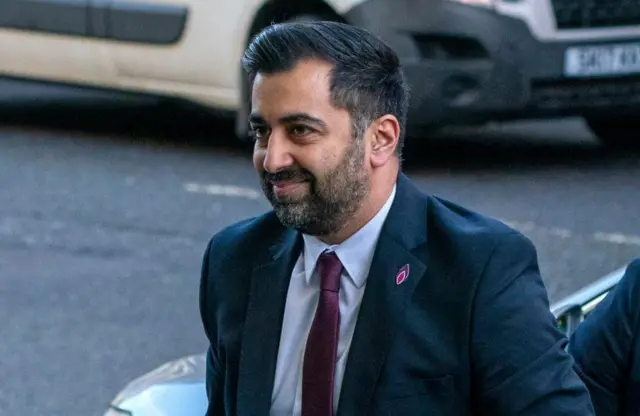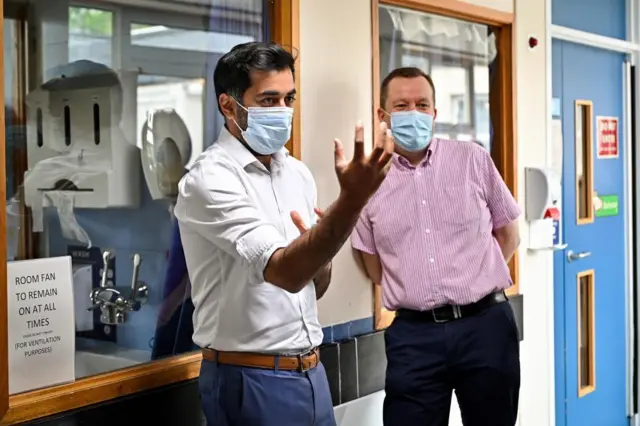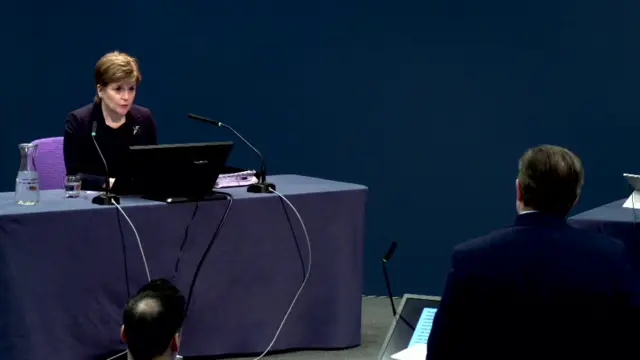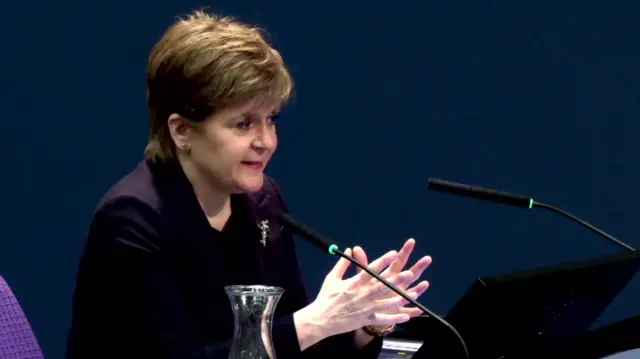Sturgeon says Boris Johnson was wrong person to be PMpublished at 12:30 GMT 31 January 2024
Inquiry lawyer Jamie Dawson tells Sturgeon that it's been suggested by a number of witnesses that Boris Johnson, formerly the UK prime minister, was the "wrong prime minister for this crisis" and asks if this is a view she shares.
"Yes," Sturgeon says, adding:
Quote MessageI'm going further here than I should and risk being reprimanded for sounding political - I'm not meaning to be - but I suppose ... I don't think I'm betraying any secrets here when I say I thought Boris Johnson was the wrong person to be prime minister, full stop."
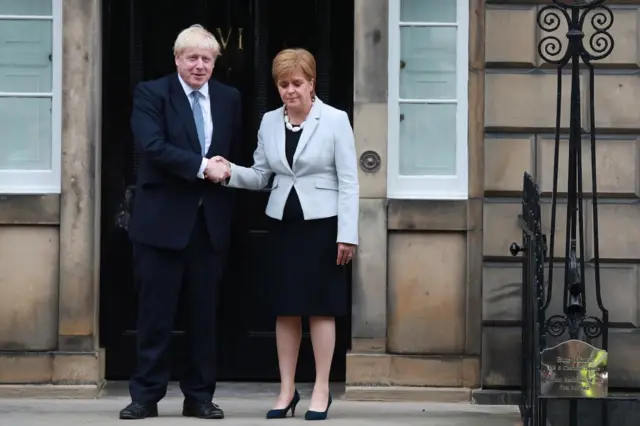 Image source, EPA
Image source, EPABoris Johnson and Nicola Sturgeon in 2019
